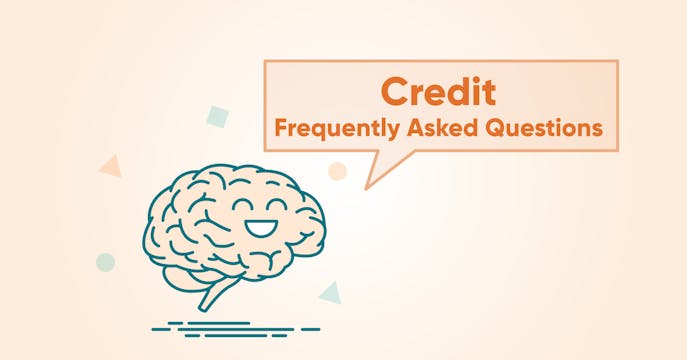Lowest Mortgage Rate in Canada. Starting from 2.49%
Are you ready to become a mortgage broker?
Or just want to test your credit knowledge? Here are a few scenarios to try out.
Test your credit knowledge with five everyday situations.
All else being equal, who would have better credit?
Scenario 1
Client A. This woman has a Visa card with a $5000 limit and routinely charges $4500 to her credit card per month. She makes sure that she pays off the balance every month.
Client B. This woman has a $15,000 limit on her Visa card and carries an average balance of $10,500. She only makes the minimum monthly payment required by Visa.
Answer: Client B
Why? Credit bureaus receive their information from Visa once a month (as they do from all credit issuers). As a result, bureaus can't determine if the credit balances are paid in full or just partially. Instead, they would see that Client A has a higher balance of 90% on her credit card compared to her limit. Client B has a credit card balance of only 70% of her limit, and so has better credit. As a rule of thumb, you should always keep your credit card balance at less than 75% of its limit.
Scenario 2
Client A. This man has managed to save over $250,000 in his RRSP accounts. In addition, he has over $150,000 in various savings accounts. He pays for everything with cash and doesn't have debt or credit cards of any kind.
Client B. This man has 3 credit cards and routinely carries a debt load of over $25,000. With $500 of total savings, he has a negative net worth of $24,500.
Answer: Client B
Why? Net worth is not reported to credit bureaus. In fact, without any debts, Client A's credit history would be bare and the bureaus view no credit as bad credit. So, he would have difficulty trying to get a mortgage compared to Client B.
Scenario 3
Client A. This woman is a brand new employee at a fast food restaurant, earning $13.50/hr. She has had a credit card for the past 18 months, with a $2000 limit. She rarely carries a credit card balance that exceeds $1000.
Client B. This woman is a doctor making an average declared income in excess of $250,000 per year. She has had good credit for years, but has recently closed all her debts and lumped everything into a single brand new loan.
Answer: Client A
Why? Income is not reported to credit bureaus. Client B has recently closed all her credit cards and other loans, thus effectively reducing her credit history to a very short period, which works against her credit, not for it. If you want to close a credit card, make sure your new credit card has been active for several months (at least 12 to 18 months). As well, Client B's new loan will be a high balance, and likely several payments away from being effectively reduced, which will also work against her credit.
Scenario 4
Client A. This man has had a mortgage for over 20 years, with a current balance of $50,000. He has never missed a payment on his mortgage and has no other debts or credit cards. He uses his debit card frequently.
Client B. This man has one credit card with a $2000 balance. He missed one monthly payment about 8 months ago. He also missed some minor payments about 3 years ago.
Answer: Client B
Why? In Canada, mortgages aren't reported to credit bureaus (yet in the United States, they are). Client A would be nearly invisible to the credit bureau. No credit equals bad credit, so he would find it difficult to get another mortgage. Client B, on the other hand, would not have trouble getting a mortgage. Even despite the occasional missed payments, his history shows consistent payments overall.
Note: Because a mortgage isn't reported to credit bureaus, in a marriage or common law relationship, it is important that each spouse has their own credit established.
Scenario 5
Client A. This person declared bankruptcy 6 years ago and was discharged for bankruptcy 5 years ago. They currently have a credit card with a $10,000 limit and an average balance of $4000. While on an extended vacation 3 years ago, they missed two monthly payments. They quickly made up for the missed payments upon returning from vacation and has never missed a payment since.
Client B. This person travels for work and is out of the country several times a year. As a result, they have a spattering of missed payments spread out over the last 4 years. The last missed payment was 3 months ago. They currently have a credit card with a $10,000 limit and an average balance of $9000.
Answer: Client A would have better credit, but...
Why? This is a trick question. Banks will forgive a bankruptcy, but only if perfect credit is maintained afterwards, which means not even one missed payment. So even though Client A has a better credit rating, because of their previous bankruptcy, the missed payments are unacceptable from a bank's point of view. Thus, Client A would find it difficult to qualify for a mortgage, whereas Client B would not find it too difficult to get a mortgage.
Know all of these credit answers, and know a lot about mortgages? Being a True North Mortgage broker means you'll help clients get a great mortgage fit and save a pile of cash. And, you'll be part of a big, happy family that cares about your career and personal goals.
Join the True North Mortgage family!
have more questions? read on

5-Star Reviews
We care, and it shows — we now have over 17,000 5-star client reviews.

Credit FAQs
Have credit questions? Here are some quick facts you should know.

Proof that our rates are lower.
Our rates are 0.18% lower on average compared to everyone else. Prove it? Okay!

